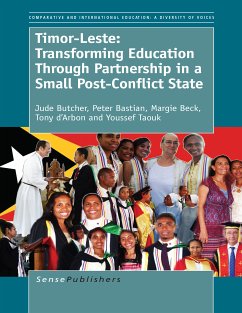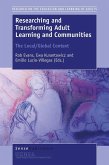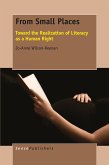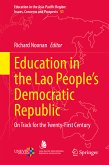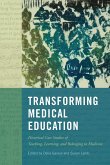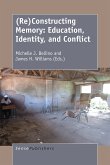This book argues that development aid in small post-conflict states, particularly in the educational field, benefits from a commitment to a shared vision, fostering co-operative relationships and working within local capacity, credibility, and attentiveness to immediate and longer-term development goals. It uses Timor-Leste as its case study of a faith-based partnership in the development of the Instituto Católico para a Formação de Professores (ICFP) at Baucau. The people of what was then East Timor voted overwhelmingly for independence in 1999 and the nation building, including reforming education, in this post-conflict small state began. The book reports how, through the commitment of the partners to capacity building and transforming education, East Timorese staff have assumed positions of responsibility in the Institute. ICFP has received very positive accreditation reports from the national authority in terms of its vision, courses, staff and student quality, and infrastructure. The significance of the challenge and what has been achieved in this teacher education institute is studied against the history of the East Timorese people and the educational policies of their former colonial powers. The history, scope and responsibilities of the partnership reveal how the partners were of one mind in terms of foundational values, institutional deliverables, infrastructure and sustainability for the Institute. This educational capacity building and its outcomes are testimony to the relevance of the development principles of the Paris Declaration and the Accra Accord as well as to the partners' shared vision as faith-based people and organisations and their commitment to Catholic social teaching.
Dieser Download kann aus rechtlichen Gründen nur mit Rechnungsadresse in A, B, BG, CY, CZ, D, DK, EW, E, FIN, F, GR, HR, H, IRL, I, LT, L, LR, M, NL, PL, P, R, S, SLO, SK ausgeliefert werden.

